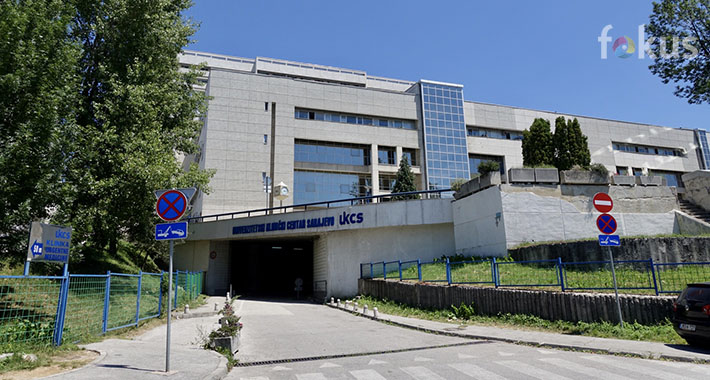SARAJEVO – During 2022, the Clinical Center of the University in Sarajevo acquired at least 20 different devices worth about 4 million KM through a public procurement procedure for which one bidder applied. Directors of several hospitals in Bosnia and Herzegovina, refusing to speak publicly about public procurement, appreciate that there is competition in the medical equipment market in Bosnia and Herzegovina. They warn that it is probably either an agreement between the bidders or a very precisely copied description of the requested goods.

In 2022, the Clinical Center of the University in Sarajevo acquired at least 20 different devices more expensive than 100,000 KM (total value of about 4 million KM) through a public procurement procedure for which one bidder applied.
These are, among other things, the following devices: 4D ultrasound machine, gamma counter, plasma sterilizer, electroencephalogram EEG machine, electromyograph EMG… transcranial Doppler TCD, colour doppler ultrasound machine, monitors for monitoring vital parameters, mini excavator, EKG machine 6/12 channel on a mobile cart, system for ventricular support of the heart (LVAD, RVAD, BiVAD and ECMO), machine for extracorporeal circulation (heart-lung), mobile X-ray machine with C-arm… (https://www. ejn.gov.ba/Registry/CASearch).
What do auditors look for first?
The Chief Auditor at the Institutional Audit Office in the FBiH Dževad Nekić says that he knows nothing about specific procurements by KCUS. However, he adds that auditors generally in public procurements first check the tender documentation to determine whether a supplier has been preferred by the invitation itself, that is, whether the possibility of competition has been ensured, that is, that several suppliers have applied.
“It is symptomatic that often only one bidder appears, because competition exists everywhere, in all areas. However, it is always possible to exclude all but one of the interested suppliers with some detail in the tender documentation. Even in these cases, it is difficult to recognize what prevents active competition and favours a particular supplier. In addition, it is also important how many potential bidders took over the tender documentation”, says Nekić.
“If potential bidders downloaded the documentation and did not send an offer – they must have found details there that made them unqualified. For example, we often come across a situation where, for example, mines buy a certain service, and as a request in the tender they very precisely specify the equipment that the supplier must have and thus make all others unqualified”, explains Nekić.
(Un)fair treatment
From the Agency for Public Procurement, director Sanja Ćubela points out:
“If the contracting authority respects the principle of equal treatment of all participants in the procedure in all stages of the public procurement procedure, and the bidder’s interest in the specific procurement is reduced, and the contracting authority receives only one or a small number of bids “, there can be no talk of irregularities on the part of the contracting authority.
However, they add that if the contracting authority does not respect the stated principles, and behaves unequally towards bidders through the public procurement procedure, for example favouring a certain bidder in a certain way, such behaviour may be subject to misdemeanour or criminal prosecution.
What is the collusion?
Transparency International in BiH warns that public procurement based on only one offer is not prohibited. They also point out that there are probably few suppliers of medical equipment. However, they do not deny that there is also the possibility of suppliers colluding.
“It is not unusual for one bidder to apply for a tender. According to the data of the Agency for Public Procurement in Bosnia and Herzegovina, we often do not even have two offers. The average is 1.8 offers per tender. But, when it comes to purchases of higher value – it is a noticeable phenomenon that, in addition to contracting authorities agreeing with suppliers, suppliers agree when who will enter which tender because then they do not lower the prices and there are no complaints. This phenomenon is called collusion, it is extremely pronounced in practice. As far as we know – the Agency for Public Procurement in BiH will ask the Ministry of Justice to introduce this criminal offence into the Criminal Code of BiH. Because now it is difficult to prosecute the perpetrators of crimes among the suppliers. With the introduction of collusion in the criminal code, this problem will be solved”, Damjan Ožegović, the senior researcher at TI BiH, is convinced.
Amendments to the Criminal Code
From Agency for Public Procurement Mostar, Sanja Ćubela, points out that this proposal for amendments to the Criminal Code of Bosnia and Herzegovina stipulates that a person responsible for a bidder or an entrepreneur who submits an offer based on false information or based on a prohibited agreement between bidders in the public procurement process will be punished with a prison sentence of six months to five years and a fine. And for acts in the public procurement procedure with a value greater than one million KM, the proposed prison sentence is from one to ten years and a fine from 1,000 to 5,000 KM, and for a legal entity from 5,000 to 50,000 KM.
“It is evident that in practice there is a phenomenon of a reduced number of bidders, submission of false information, division of the market, and fictitious offers, that bidders enter into agreements by completely faking the competition for public procurement contracts, agree on lowering prices, thereby pushing other bidders out of the public procurement procedure, distorting competition, the sudden withdrawal of the offer, different prices in different places, which basically has a fraudulent purpose, that is, acceptance of an offer based on prohibited agreements or false information. The perpetrator is the person who submitted the offer in the public procurement procedure. the form of guilt is premeditated-dolus. This practically means that the perpetrator acts with a certain goal, which is to accept the offer, and in these cases, there is no reference to delusion because the participants in the public procurement procedure cannot plead ignorance of the Law on Public Procurement. The essence of the mentioned criminal offence is that it was committed regardless of whether the criminal goal was achieved because the offence was completed by delivering such an essentially irregular and illegal offer”, explains Ćubela.
If Srebrena malina could
When asked who will establish the existence of this criminal offence, the Agency replies that the Competition Council of Bosnia and Herzegovina is responsible for the procedure for the protection of market competition.
However, the BiH Competition Council says that they are not competent to interpret the Law on Public Procurement. However, they recommend that, if we have information about violations of market competition, we can provide them with evidence and relevant information or initiate proceedings.
“If Srebrena malina could sell respirators – why can’t others”, says one of the interlocutors.
Messy and imprecise
A cursory look at the data on public procurement on the KCUS website (https://www.kcus.ba/javne-nabavke-svi/) shows that records are kept irregularly and imprecisely. Interview.ba

